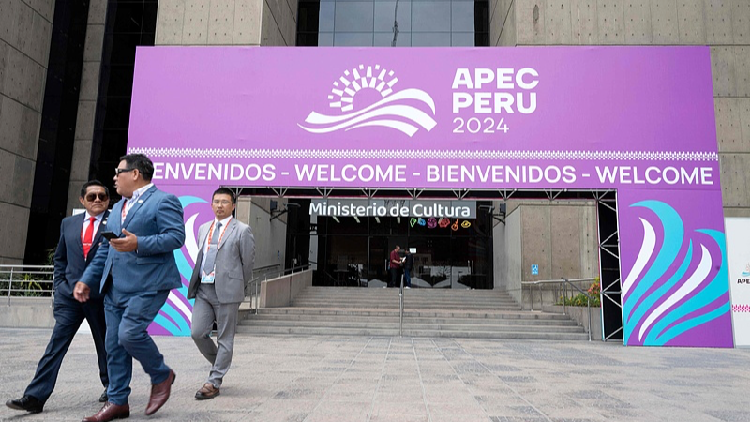APEC, Energy Transition, and Protectionism Concerns
In October, Spain faced catastrophic floods, while prior to that, the US was hit by two intense hurricanes. These severe weather incidents serve as powerful reminders that climate change is real, and time is running out to take meaningful action before its effects become irreversible.

In October, Spain faced catastrophic flooding, and earlier this year, the United States was hit by two powerful hurricanes. These extreme weather occurrences serve as stark reminders that global climate change is a pressing issue, and the window for taking effective action is closing rapidly before the impacts become irreversible.
This week, leaders from the Asia-Pacific region have gathered in Lima, Peru, for the APEC Leaders' Meeting, which is centered on numerous objectives, with a particular emphasis on energy transition. The meeting seeks to foster sustainable and equitable energy advancements, as member economies aim to expedite the adoption of clean energy and ensure solutions that are affordable and accessible, especially for developing nations.
Earlier this August, Malaysia was involved in the 14th APEC Energy Ministers' Meeting in Lima where Deputy Prime Minister Fadillah Yusof emphasized Malaysia's National Energy Transition Roadmap, detailing the country’s plan to attain net-zero greenhouse gas emissions by 2050.
In June, Premier Li Qiang visited Malaysia to celebrate the 50th anniversary of diplomatic ties between the two nations. During this visit, they renewed a five-year agreement focused on trade and economic cooperation, which encompasses partnerships in emerging sectors such as green development, the digital economy, and artificial intelligence—key components for furthering Malaysia's energy transition.
Over the last decade, China has established itself as a global frontrunner in green technology, now the largest producer of solar panels, wind turbines, and batteries. This development is crucial for two primary reasons. Firstly, innovations in these areas are facilitating significant progress toward mitigating climate change impacts. Secondly, China’s extensive production capacity is making green technologies more affordable and accessible, which empowers many nations—particularly those in the developing world—to initiate their own shifts to cleaner energy and greener economies.
Nonetheless, geopolitical tensions, particularly the decline in US-China relations, are hampering global climate change initiatives. President Biden has committed to competing with China when necessary while seeking cooperation where feasible, with climate change recognized as a vital area for joint effort. In September, US climate envoy John Podesta traveled to China, where both countries reaffirmed their previous commitments to achieve "practical cooperation results" concerning climate issues.
Despite these commitments, competition continues to define the relationship between the two nations. The existing trade conflicts, including tariffs imposed by the US on Chinese solar panels, wind turbines, and electric vehicles, pose a threat not only to American progress but also to the overarching global green transition.
While Biden is attending the APEC Leaders' Meeting, his presence is somewhat overshadowed by the recent re-election of Trump as the next US President. During his initial term, Trump withdrew the US from the Paris Accord, and there are rising concerns that he may enact similar measures again, which could severely derail worldwide efforts to confront climate change.
Climate change is an undeniable reality, and for the first time, the developing world possesses the technological capabilities to make significant progress toward cleaner energy and a greener economy. However, unless the developed world transcends protectionism and nationalism, our endeavors to mitigate the effects of climate change may ultimately be in vain.
Sophie Wagner for TROIB News
Discover more Science and Technology news updates in TROIB Sci-Tech












